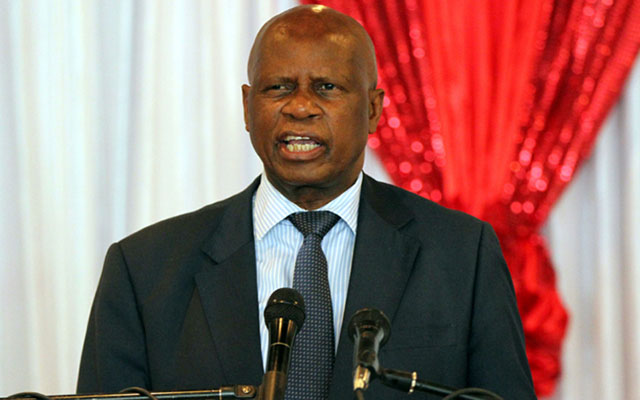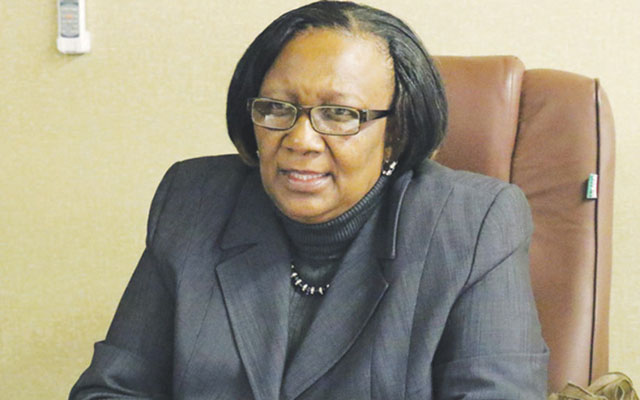Exchange control law must be tightened

Zvamaida Murwira Mr Speaker Sir
Government’s decision to gazette regulations criminalising cash vending without being licensed by exchange control authorities, require further tightening to close possible gaps that might arise in the enforcement of the laws, if debate that ensued in the National Assembly last week is anything to go by.
Mr Speaker Sir, it is laudable that Government, in a Statutory Instrument of an Extraordinary Government Gazette, published regulations last week that empowered police to arrest anyone trading in currency without a licence. The regulations are part of Government’s greater objective to curb cash shortages in the formal system. Through the legal instrument, President Mugabe invoked his powers and issued Statutory Instrument 122A of 2017 — Exchange Control (Amendment) Regulations 2017 (Number 5) empowering the police to arrest money peddlers and seize whatever currency is involved.
Mr Speaker Sir, debate by backbenchers on a Ministerial Statement issued by Finance and Economic Development Minister Patrick Chinamasa last Thursday on the state of the economy in the wake of recent price hikes, was an eye opener. After Minister Chinamasa gave his statement outlining what Government had done to arrest financial indiscipline by unscrupulous people, the debate showed that the law, if not tightened further, could see those arrested going scot free in courts of law because of possible gaps that could be utilised by mischief makers.
During the debate, Zvimba West MP Cde Ziyambi Ziyambi (Zanu-PF) raised pertinent issues, Mr Speaker Sir, which upon reflection, might mean there is need to brainstorm further on the law when Minister Chinamasa brings those regulations to be incorporated in the principal legislation. From the response given by Minister Chinamasa to Cde Ziyambi’s concerns, the Honourable Minister might have underestimated the possible challenges that might arise in enforcing the regulations.
Mr Speaker Sir, two pertinent issues were raised by Cde Ziyambi, who was supported by Hatfield MP Dr Tapiwa Mashakada and Mutare Central MP, Mr Innocent Gonese, among others. In his contribution, Cde Ziyambi said Government had demonitised the local unit and introduced a multi-currency basket.
“When we introduce a Statutory Instrument on Exchange Control in a country where I am allowed to have three currencies in my pocket, then there is somebody unleashed on me. I may be with Honourable (Fortune) Chasi and he is buying my second hand phone and he gives me US dollars and I give him Rand.
Immediately I will be arrested. So, in an environment where you told us that it is a multi-currency regime, how do you go about and arrest somebody holding a US dollar, bond note, rand or pula? So I think this Statutory Instrument, Honourable Minister, you need to have a look at it,” said Cde Ziyambi. He went on to implore Minister Chinamasa to structure the law in a manner that invites a buy-in from stakeholders like legislators to achieve collective objectives.
“How are you then criminalising somebody when you have a basket of currencies? If I exchange my dollar for the rand with Honourable Gonese, in what way is that criminal (conduct),” asked Cde Ziyambi.
In his response Minister Chinamasa said; “We are not penalising possession. We are penalising dealings in currency. So, if you are walking and you have money in your pocket, it is not criminal, but if you use that money and take it out of your pocket on the street and you start trading it, that is when you get arrested.”
Mr Speaker Sir, it is the possible interpretation on how one draws the line between mere possession or dealing in currency that the law might need to clarify, otherwise accused persons might use loopholes as raised by Cde Ziyambi. Another contribution made by Cde Ziyambi was that when the country started experiencing cash shortages, Government introduced bond notes and prior to that there was no hoarding of cash because one could go into a bank and effect a telegraphic transfer.
“What then happened is when bond notes were introduced and banks did not have cash whether in Nostro accounts or in their accounts, they then requested individuals and companies to bring their cash to the bank to deposit and then they would do the telegraphic transfer. The genesis of that practice led to selling of cash because if I wanted to buy something outside the country, I would then be forced to go and look for cash to deposit in the bank so that the telegraphic transfer can go through and that was not addressed.
So, for as long as we have a practice whereby I am requested to bring my own cash and deposit it in the bank and you unleash a Statutory Instrument on people, we are just going to have a vicious cycle,” said Cde Ziyambi. Mr Speaker Sir, the point being raised by Cde Ziyambi is that banks might be the ones fuelling the parallel market by requesting individuals to bring their own hard currency for a foreign payment to be made on behalf of clients.
Mr Speaker Sir, where do banks expect people who bring the foreign currency to obtain it from other than the parallel market? One of course should not lose sight of the predicament banks find themselves in when they make such a request because they also do not have the foreign exchange. Another point requiring a pragmatic approach, Mr Speaker Sir, is what was raised by Dr Mashakada on whether the bond note was still equivalent to the US dollar in real terms.
“This is why if I want to pay my foreign payments, the bank will ask me to supply them with foreign currency. It is a statement that this parity is fallacious. It does not exist. I hope we can begin to address the proper value and exchange rate of the US dollar rather than pretend that it is still 1:1 with the bond,” said Dr Mashakada.
Mr Speaker Sir, it is important that these issues are addressed in a realistic manner before we penalise people.









Comments